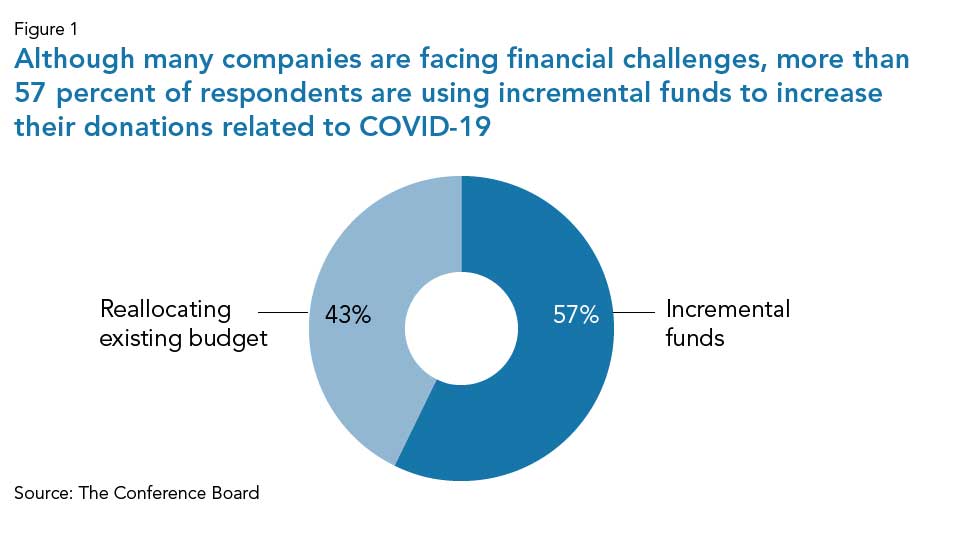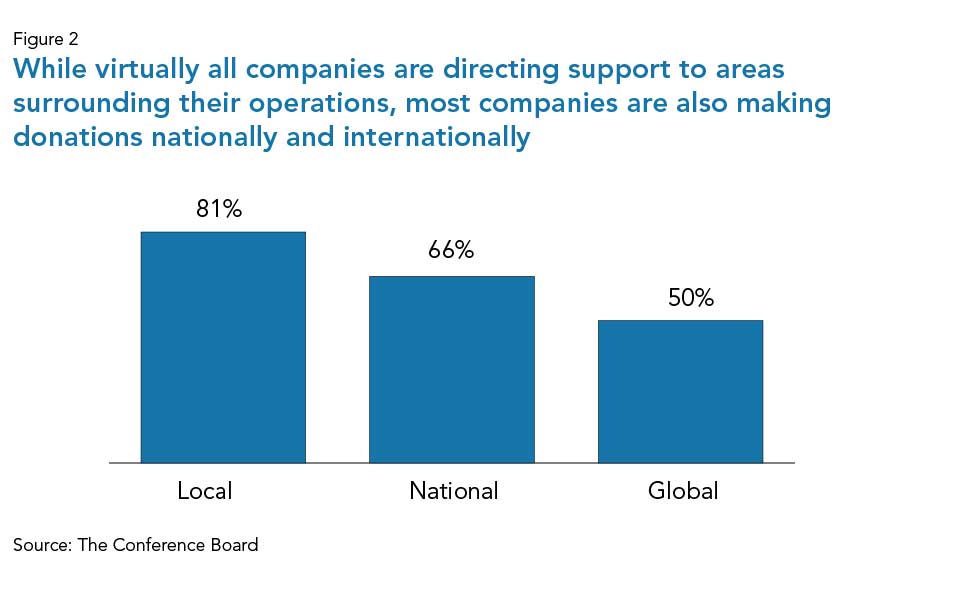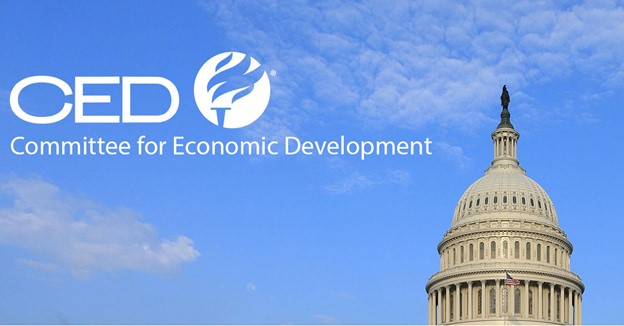Increasing Support
Some 84 percent of the 55 companies that responded to our March 18-27, 2020 survey stated that they are supporting philanthropic efforts in response to COVID-19, while most of the rest (13 percent) were actively considering it.
While many companies have yet to determine the amount of their overall donations related to COVID-19, reported amounts ranged from US $500,000 to $90 million.

At the same time, 43 percent are reallocating their existing budget to get cash and other resources to where they’ve determined they’re needed most. And in an overwhelming show of confidence in their nonprofit partners and belief in the importance of their continued existence, over 90 percent of respondents are either unrestricting or considering unrestricting funds to all of their grantees so they can use the donations to cover general operating costs.
Targeting Support
As the impact of the pandemic shifts as it engulfs the globe, companies are directing support to their facilities and employees that are most in need. This is reflected in the 81 percent of respondents targeting their support locally, 66 percent targeting funds nationally, and 50 percent targeting funds internationally.

In-Kind Support
In addition to funding, many companies are providing products and services to government agencies and nonprofits alike. Examples of this form of expedited relief include:
-
Provisions to food banks;
-
Logistics and transportation to deliver goods;
-
Protective gear for health care workers;
-
Government and commercial real estate being repurposed for various health and medical functions;
-
Software and other intellectual property being made open source; and
-
Website development and public-service airtime to provide real-time information.
Employee Volunteering
While on their own employees are continuing to volunteer at food banks, blood drives, and other organizations, most respondent companies have entirely ceased physical volunteering opportunities for the time being. Those that have continued in-person programs are providing some form of guidance to employees regarding adhering to safety measures. In addition, slightly over half of respondent companies are offering virtual volunteer opportunities. Points of Light has compiled an extensive list of organizations with such volunteer opportunities—ranging from online mentoring to helping law enforcement solve cold cases to crisis intervention via SMS text.
Employee Giving
While 73 percent of respondents are not increasing the amount they provide for employee matching programs, many are allowing organizations that would not be included under normal circumstances—for example, by broadening an education matching gifts program to include social service and medical nonprofits.
Employee Relief Funds
ERFs are typically established by a company and funded by a company and/or its employees to help employees cope with unexpected hardships that place them under undue financial stress, and 31 percent of respondents are adding them. Of the respondent companies that have an ERF, 33 percent are expanding their funding guidelines. With many schools closed, for example, childcare, which is usually not covered, often becomes an expensive necessity for working parents. For more COVID-19-specific information on ERFs and other forms of employee financial assistance, please see KPMG’s bulletin.
Allocating Funding
As corporate citizenship and philanthropy professionals are managing the immediate crisis, they are also mindful of the broader picture—including (1) government programs currently in the works intended to provide needed resources to all business sectors; (2) the increased load on social safety nets for an undetermined period of time; and (3) the likelihood that other disasters will require their attention in the months to come.
With these broader considerations in mind, the survey respondents are developing strategies that provide for:
-
A phased approach to issuing grants for COVID-19 relief, so as to deploy their resources over time;
-
Combining financial support with core competencies, such as consulting, logistics, and technology services;
-
Advancing funds that are part of routine grant making later this year to the present, so that nonprofit organizations can continue operating; and
-
Utilizing statewide and/or regional organizations to distribute in-kind contributions, such as personal protective equipment to health care workers.
The Conference Board’s survey results indicate a strong commitment from companies to support their employees, assist their nonprofit partners, and deploy their resources to combat COVID-19—despite the challenging financial conditions that many companies are facing. A sustained effort will be needed, however, as we expect a decline in year-over-year GDP in the US, which will require continued leadership by corporate philanthropy and citizenship professionals. For additional information and insights pertaining to the business implications of the COVID-19 pandemic, we encourage you to visit our COVID-19 hub.


